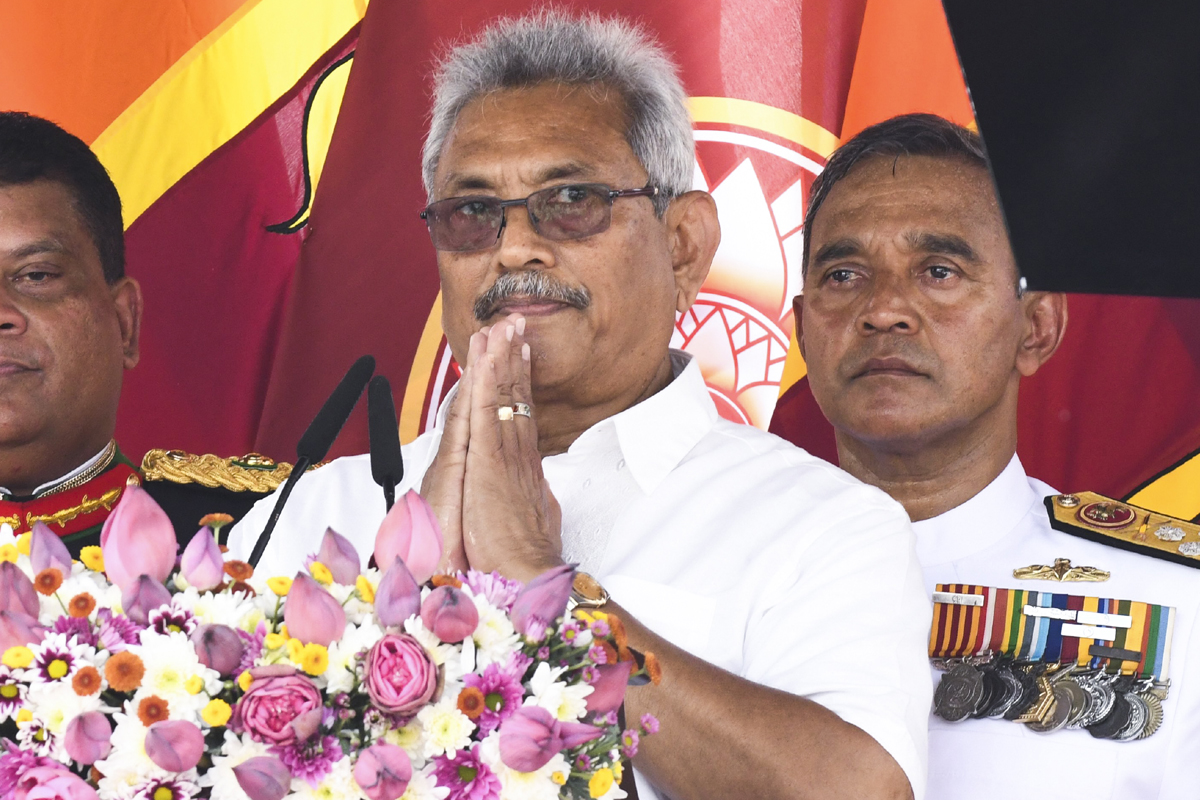GDP Growth
India’s economic trajectory, as outlined by Finance Minister Nirmala Sitharaman, paints a picture of resilience and potential amidst global uncertainties.
After a 13-year trial, the Colombo High Court found Sergeant Ratnayake guilty of the multiple murders and sentenced him to death.

(Lakruwan WANNIARACHCHI / AFP)
While worldwide attention remains focussed on the Covid-19 pandemic, President Gotabaya Rajapaksa has granted pardon to a Sri Lankan soldier Sunil Ratnayake on death row for the massacre of eight internally displaced Tamils, including a five-year-old girl child and two teenagers, in Mirusuvil village in the Northern Province in December 2000.
After a 13-year trial, the Colombo High Court found Sergeant Ratnayake guilty of the multiple murders and sentenced him to death. The conviction and sentence were unanimously upheld by a five-judge Bench of the Supreme Court in May 2019.
The conviction of an army soldier for the murder of Tamil civilians during the 30-year ethnic war was an exception in Sri Lankan judicial history. This was often touted as an instance of accountability of the Sri Lankan government which took no genuine step to address war-time atrocities committed against Tamils.
Advertisement
Gotabaya’s pardoning of and setting free Ratnayake sends a clear message that military personnel who had perpetrated horrific war crimes, even if convicted by courts of law, would not only be granted presidential pardon and set free, but treated as war heroes.
The presidential pardon has been described as an affront to the victims and yet another example of the failure of Sri Lanka to fulfil its human rights obligations to provide meaningful accountability for war crimes and crimes against humanity, by UN High Commissioner for Human Rights, Michelle Bachelet. The story of the Mirusuvil massacre of civilians goes back 20 years to 19 December 2000, when nine Tamils travelled from Udipiddy to Mirusuvil, a village 25 km from Jaffna town.
They were displaced people from Mirusuvil resettled in a camp at Udipiddy. Displaced family members used to obtain permission from the Sri Lankan Army to visit their ravaged homes. On that fateful day, except for one who managed to escape, eight failed to return to Udipiddy. They ran into some army men who blindfolded them and led them away.
It soon emerged the eight were killed by the soldiers. On the basis of information provided by the one who escaped, military police visited the spot and dug up the skeletal remains of the victims. Five soldiers were indicted and tried before a special Bench of three High Court judges. The victims have a right to justice and Sri Lanka has an obligation to ensure that justice is done.
Gotabaya, who was Sri Lanka’s defence secretary during the final stages of the civil war, had made it clear that no ‘war hero’ will languish in jail during his presidency. The Tamil Civil Society Forum said in a statement, “We trust that all concerned will henceforth stop asking the Tamil people to be patient and trust in Sri Lanka’s judicial system to deliver on accountability and justice.”
Accountability, alas, is so rare for human rights violations of the ethnic minorities in today’s Sri Lanka.
Advertisement